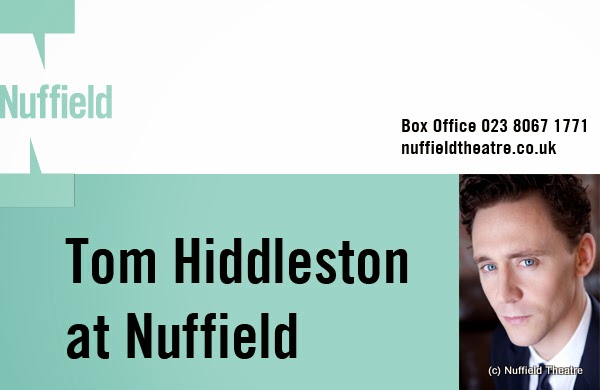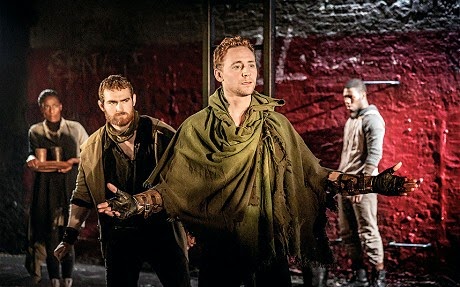Judith Kerr and Other Heros
Sep. 30th, 2015 09:48 pmA highlight of last week was the encore broadcast performance of Coriolanus - the Donmar Warehouse production, featuring Tom Hiddleston, Mark Gatiss and Hadley Fraser. I was fortunate enough to see the production live, back in January 2014, and I really enjoyed being able to see it again, and to realise once more what stunning actors Tom Hiddleston and Mark Gatiss are.
Then on Friday, came the start of the Bath Children's Literature Festival, now in its 9th year. The first event, and the first I booked when the brochure came out, was with Judith Kerr.
Her 'Mog' books are some of the earliest books I remember reading, as a child, and then when I was older, her book 'When Hitler Stole Pink Rabbit' was an early introduction to the history of Nazi Germany, and experience of Jewish refugees, and I then read the other 2 books in the trilogy when I was rather older.
This is the third time that Kerr has been booked to appear at the Festival, but on each of the previous occasions she had to cancel due to poor health.
So, I was particularly keen to see her this time, and really pleased that was able to make it (she turned 92 this summer, so its hardly surprising that she's not always able to make it to events!)
She was interviewed by Julia Eccleshare (former Children's Book Editor of the Guardian), and it was an interesting evening. She was officially publicising her most recent book, 'Mister Cleghorn's Seal' which is a short novel for older children, abut a man who adopts a seal. She explained that had wanted to do a book with lots of pencil drawings, and to suit the age where children can read. in her words "they are too old for picture books but a 250 novel is a bit daunting - the gap between Dr Seuss and Sherlock Holmes".
| Judith Kerr : 25.09.2015 |
She went on to explain that the book was inspired by an incident in her father's life - he ended up with a baby seal after it's mother was killed in a cull, and he decided to take it home rather than allow it to be killed. She described how he took it by train from Normandy to Berlin, attempting to feed it on a mixture of milk and cod liver oil, before arriving in Berlin and taking a taxi to a restaurant, as he had run out of his milk mixture!
In real life, things didn't end well for the seal,I think the fictional one probably does better!
Kerr's love and admiration for her father and his skills as a story teller came through loud and clear. Moving on, she spoke about Mog - who was a real cat, the first that she had, when she and her husband first had a home with a garden, and gave us a number of anecdotes about various cats, including the current one who has trained Kerr to open the door for her (after looking out through the cat flap)!
Which led on to The Tiger Who Came to Tea . Julia Eccleshare raised the fact that Michael Rosen has suggested that the Tiger represents Kerr's memory of, and fear of the Nazis - Kerr immediately responded that she loves Rosen and is happy for him to say anything he likes, but that the Tiger was a story for her daughter incorporating all of her daughter's favourite things, and was made up when her husband was, unusually working away from home so she and her children were lonely and wanted someone, anyone, to visit. She also explained that she was able to then make the story into a book once both of the children were in school and she had time.
Kerr than answered questions from the audience. She explained that she considered herself to be an illustrator first, and writer second, and that she felt she had learned a lot about writing from her husband (Scriptwriter Nigel Kneale) and her son (novelist Matthew Kneale). She also explained that she thinks in English, and that while she does speak French and German can only write (books) in English. She wrote When Hitler Stole Pink Rabbit because she wanted to tell her children about her own childhood, and that she was surprised when it was published, in part because it did not conform with what might be expected; that normally in children's books (at least at that time) parents were remote but could do anything, but her own parents were not like that, and that despite everything, she had a happy childhood. She also spoke at some length about her experience of being a refugee, her feeling of gratitude to Britain for letting her family in and saving their lives, and commenting that even during the London Blitz, with people dying every night, no one was cruel or offensive to her parents (who both had strong, and obvious German accents). She was asked about the current refugee crisis and simply said that she did not think that the scenarios were the same, as the sheer numbers of people now involved are so much greater, and she doesn't see there being an easy or obvious answer.
Finally, she was asked by a young girl whether there really was a Pink Rabbit, and whether it was left behind. And she confirmed that yes, there was, and it was left behind. But, she added, "I've got over it".
Over all, she came across as a wonderful, witty and optimistic person - I would have loved to have had the opportunity to say hello but (understandably) she did not do a signing, but I'm very glad that I had the opportunity to hear her speak. It was a fun evening.







